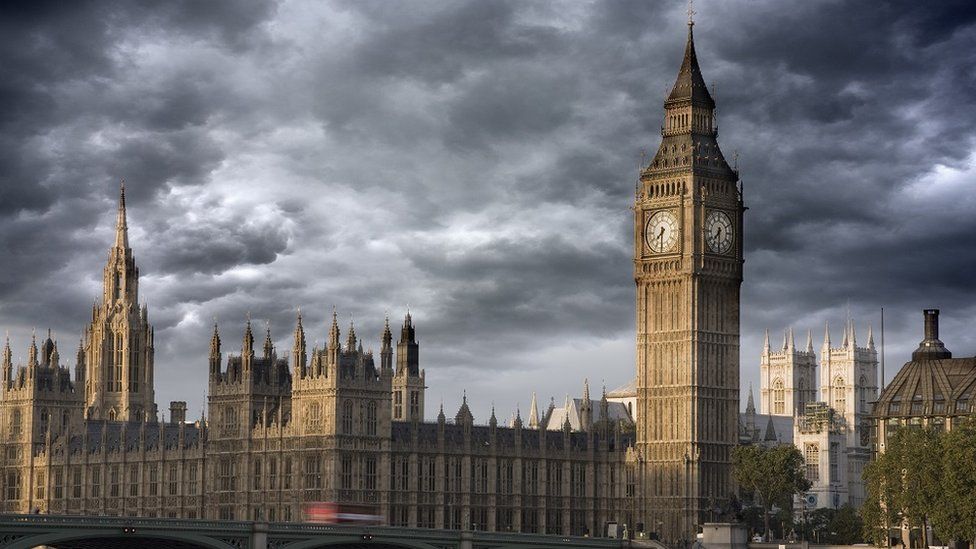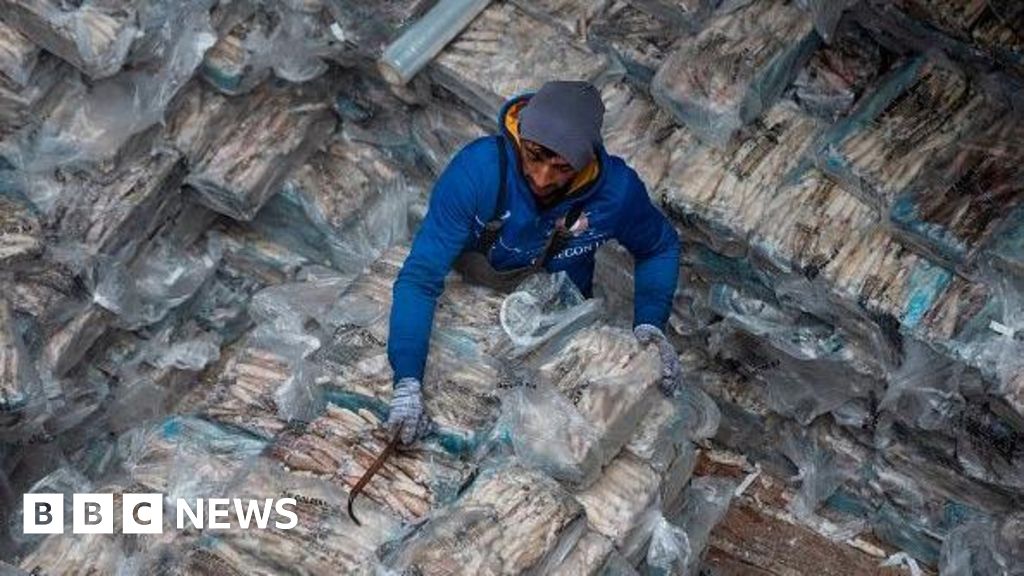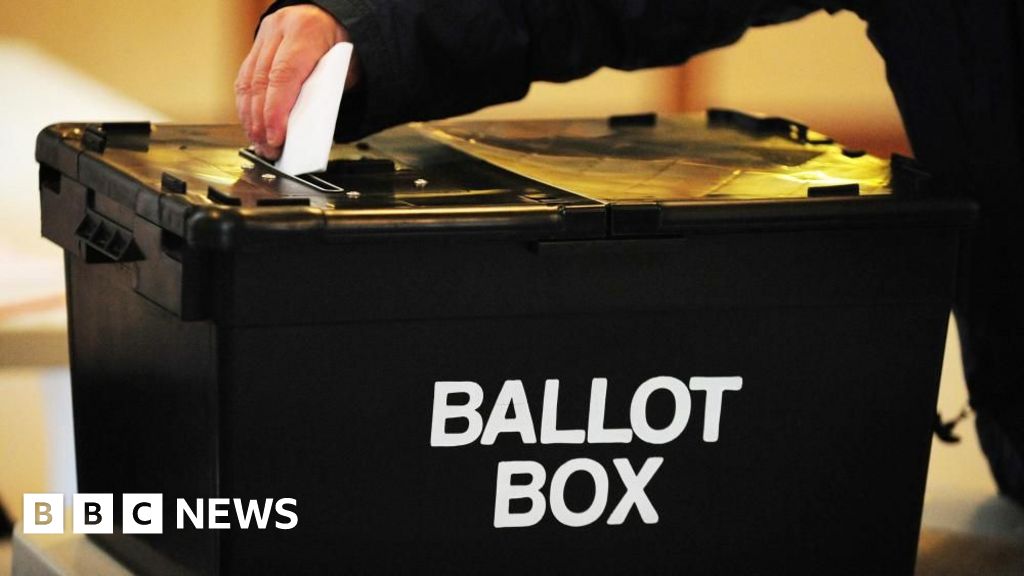ARTICLE AD BOX
 Image source, Getty Images
Image source, Getty Images
By Ione Wells
Political correspondent
MPs charged with violent or sexual offences would be banned from setting foot in the House of Commons, under new proposals.
If the plans are approved, any MP charged with these offences would need to stay away from the building until their case has concluded.
It would apply to MPs charged by police, not accused via media reports or Parliament's complaints system.
The consultation comes after fresh sexual misconduct claims against MPs.
These include a senior Conservative MP who is facing allegations of rape and sexual assault who, as first reported by The Sun newspaper, was reported to the police by Tory MP colleagues on 28 October.
Police investigation
The unnamed MP still has the Conservative whip, meaning they can represent the party in Parliament.
Conservative party chairman Nadhim Zahawi said on Sunday the party would act if police opened an investigation into the MP.
Mr Zahawi said he was made aware of the allegations when he became party chairman in October.
He said he had immediately commissioned independent legal advice in addition to the advice from the party's in-house lawyers.
"If there is an investigation by the police, then we will obviously take action," he told Times Radio.
"But at the moment, I'm waiting for the legal advice on safeguarding on this. It's right to do this properly."
In a statement, the Met said it had received allegations via a third party of "serious sexual assault" on 28 October and that officers were "making inquiries" into the allegations.
It said the allegations were reported to have taken place on unknown dates at undisclosed locations.
Mike Clancy, general secretary of Prospect, one of the unions that represent Parliamentary staff, said: "The report that another MP has been accused of sexual offences raises important questions as to who knew what when, and what have they done about it.
"This MP remains free to visit the House of Commons and interact with staff despite these very serious allegations. This highlights yet again that there is no fit-for-purpose process in place to deal with this type of case and make Parliament a safe place to work."
'Disregard towards our safety'
Image source, Getty Images
Image caption,Only MPs charged by police would be banned under the proposals
We spoke to a former Parliamentary staff member who complained about an MP's behaviour through Parliament's Independent Complaints and Grievance Scheme (ICGS), on condition of anonymity.
They said it was "very concerning and damaging to see somebody who you have complained about walking around the estate especially if there is a sexual misconduct element to it".
The MP they complained about was later found by an independent panel to have sexually harassed the staff member.
When asked if the proposed ban should go further than MPs charged by police, they said those accused through the complaints scheme "are still very much a threat to the safeguarding of staff".
"So it does show a disregard towards our safety and staff welfare not to exclude someone who has been accused of sexual misconduct [through the ICGS] from the estate," they added.
"I know for a fact both me and quite a lot of other people would have felt a lot more comfortable if the person I complained about wasn't on the estate."
Parliament's priority "should be the safety and welfare of staff, not the protection of the reputation of an MP", they said.
Separately, a different Conservative MP was arrested in May on suspicion of rape and sexual assault.
In May, the Met Police said a man, aged in his 50s, was arrested on suspicion of indecent assault, sexual assault, rape, abuse of position of trust and misconduct in public office.
The unnamed MP was taken into custody earlier this year and has been bailed pending further enquiries.
Proposed changes
It came after the Met received a report in January 2020 relating to alleged sexual offences having been committed between 2002-09 in London.
Last week, the MP had his bail date extended until mid-February 2023 having previously been set for mid-November.
The investigation into this MP is ongoing, led by officers from the Met Police's Central Specialist Crime team.
When the MP was arrested earlier this year, the Conservative Whips office, which is responsible for party discipline, confirmed they had asked the MP to stay away from parliament during the investigation.
The House of Commons Commission are consulting people who work in the building on their proposals, which include:
- MPs charged with violent or sexual offences could be excluded from the parliamentary estate until any cases are concluded
- Any decision to exclude an MP would be judged on a case by case basis and assessed by a panel
- Any power to exclude MPs would be ultimately be for MPs to decide on
The Commons Commission proposals would not apply if evidence of serious sexual or violent misconduct emerged in the media, through the ICGS, or if an individual was arrested but not charged.
They listed several reasons for this, including their desire to protect the anonymity of individuals who have not been charged with any offence.
The parliamentary authorities emphasised that cases that result in charges are "rare".
"Within the last six years there have been two Members charged with and convicted of sexual assault; and one convicted of harassment with threats of violence," a spokesperson said.
"On several occasions, Members arrested or alleged to be under investigation for sexual offences have agreed voluntarily not to attend the estate. That voluntary commitment has not always been honoured. It has also been unclear whether it applies to Parliamentary-funded travel."
They also argue that while some workplaces would take precautionary action if there is a "reasonable suspicion" that an employee has engaged in violent behaviour, MPs are not employees of the House of Commons so their options to respond to such cases are more limited.

 2 years ago
33
2 years ago
33








 English (US) ·
English (US) ·